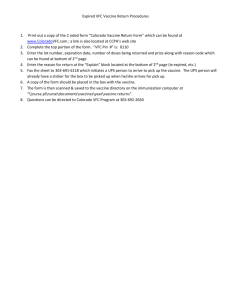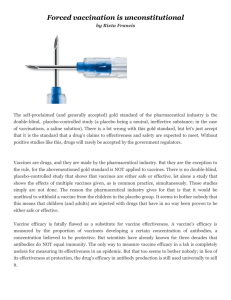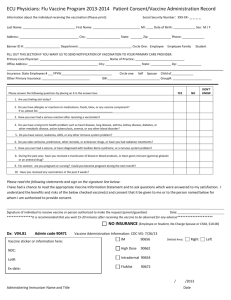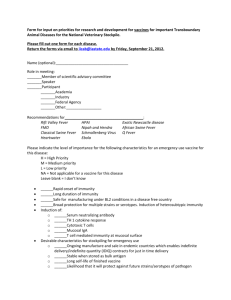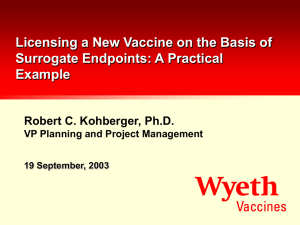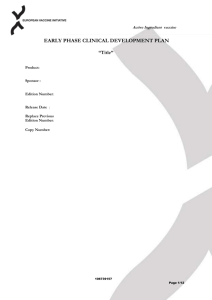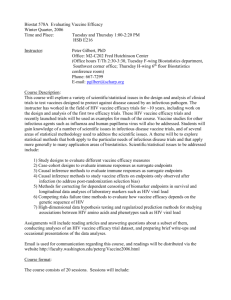Report No. 03-01 Date: April 3, 2003 Title: Estimating Vaccine
advertisement
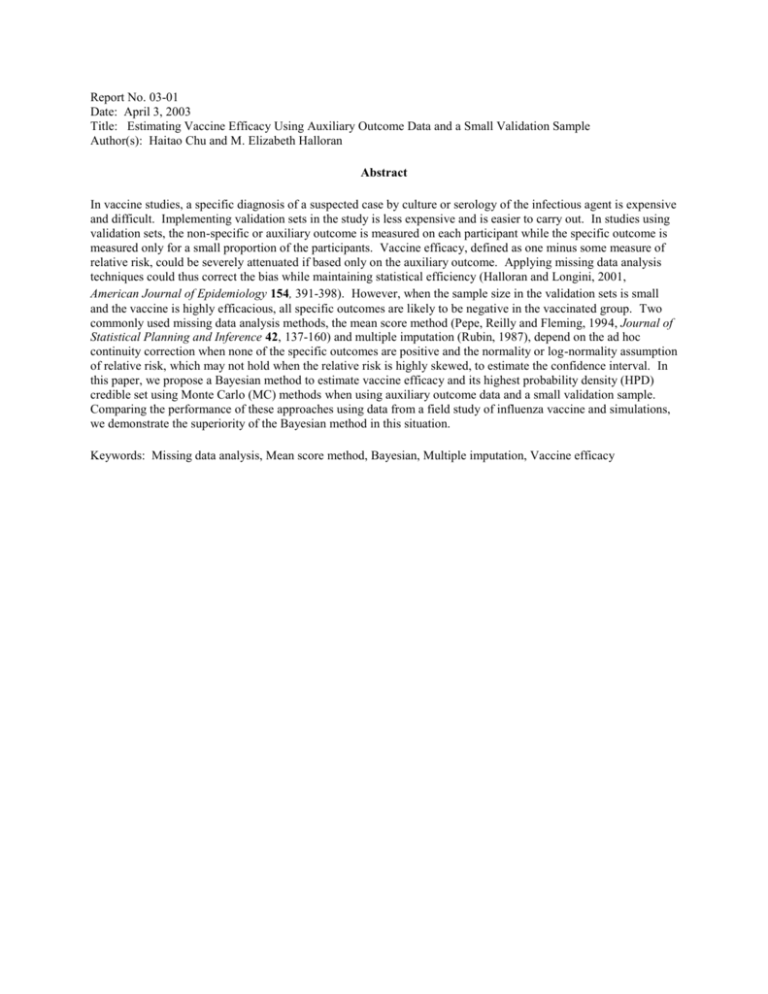
Report No. 03-01 Date: April 3, 2003 Title: Estimating Vaccine Efficacy Using Auxiliary Outcome Data and a Small Validation Sample Author(s): Haitao Chu and M. Elizabeth Halloran Abstract In vaccine studies, a specific diagnosis of a suspected case by culture or serology of the infectious agent is expensive and difficult. Implementing validation sets in the study is less expensive and is easier to carry out. In studies using validation sets, the non-specific or auxiliary outcome is measured on each participant while the specific outcome is measured only for a small proportion of the participants. Vaccine efficacy, defined as one minus some measure of relative risk, could be severely attenuated if based only on the auxiliary outcome. Applying missing data analysis techniques could thus correct the bias while maintaining statistical efficiency (Halloran and Longini, 2001, American Journal of Epidemiology 154, 391-398). However, when the sample size in the validation sets is small and the vaccine is highly efficacious, all specific outcomes are likely to be negative in the vaccinated group. Two commonly used missing data analysis methods, the mean score method (Pepe, Reilly and Fleming, 1994, Journal of Statistical Planning and Inference 42, 137-160) and multiple imputation (Rubin, 1987), depend on the ad hoc continuity correction when none of the specific outcomes are positive and the normality or log-normality assumption of relative risk, which may not hold when the relative risk is highly skewed, to estimate the confidence interval. In this paper, we propose a Bayesian method to estimate vaccine efficacy and its highest probability density (HPD) credible set using Monte Carlo (MC) methods when using auxiliary outcome data and a small validation sample. Comparing the performance of these approaches using data from a field study of influenza vaccine and simulations, we demonstrate the superiority of the Bayesian method in this situation. Keywords: Missing data analysis, Mean score method, Bayesian, Multiple imputation, Vaccine efficacy


